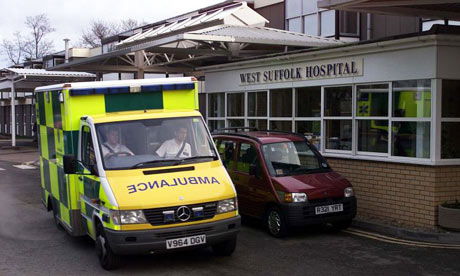
A 32-year-old woman has died of swine flu two weeks after giving birth to her second child, it emerged today.
Sarah Applin, of Thurston in Suffolk, died on Tuesday in West Suffolk hospital in Bury St Edmunds. She gave birth to a son, William, on 22 December by caesarean section, family members said. She and her husband, Richard, also had a four-year-old daughter.
Applin's parents, Jane and Barry Waterman, said: "Our daughter ... sadly died ... of complications with pneumonia following treatment for swine flu."
No further details have yet emerged about the case, including whether Applin had any underlying medical condition which may have increased her risk of developing severe breathing problems as a result of catching swine flu.
A total of 39 people had died from seasonal flu and more than 700 were in hospital critical care units by last Thursday, almost all as a result of H1N1.
The Department of Health (DoH) will release the latest figures early this afternoon. Data from the Royal College of GPs showing if the spread of swine flu has stalled or increased will also be published.
Applin's parents advised anyone among the 16 million Britons who were classed as "at risk" of becoming seriously unwell with the H1N1 virus because they have vulnerable health – particularly pregnant women – to get vaccinated as soon as possible.
Doctors have expressed growing concern that too few of the vulnerable have been immunised with this winter's seasonal flu jab, which includes H1N1 protection.
"We would like to strongly urge any person on the at-risk register, especially pregnant women, to have the flu vaccination," they said.
Doctors, including the chief medical officer, Dame Sally Davies, have highlighted the need for pregnant women to have the jab, which they have stressed poses no risk to an unborn child. But as few as 25% of pregnant women had been immunised by early last week, according to reports. Research shows that pregnant women are four times more likely to develop complications as a result of swine flu.
The government has admitted there is a shortage of flu vaccines in parts of England and is asking suppliers whether they could bring in more from overseas.
Suppliers have been asked to gather any leftover flu jabs licensed for use in the UK from factories across Europe and to check what other stocks could be imported.
Although the (DoH) said there was "no national shortage" of vaccinations it has admitted to "local supply" problems, following reports over the past few days of doctors turning patients away because stocks had run out.

